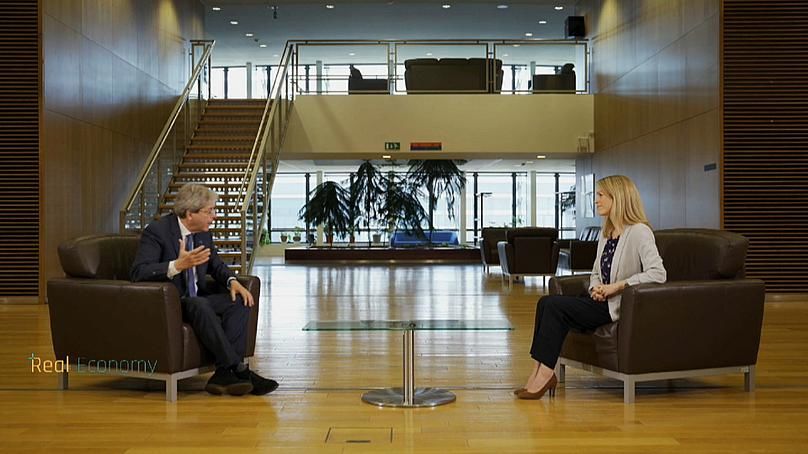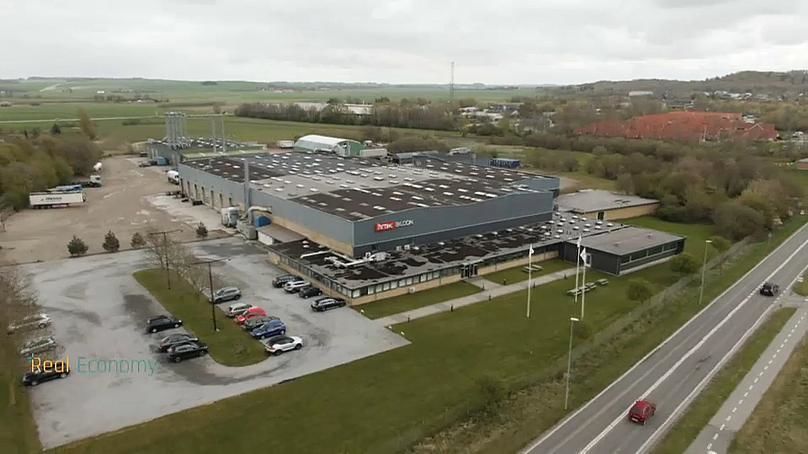
Digital technology has kept us connected during the pandemic - how can it help Europe's recovery?
Digital technology is changing the way we live and work. The pandemic and lockdowns has shown how much we depend on it, from remote working to online medical consultations to video calls with family and friends.
However, the pandemic has also highlighted the gap between the digital ‘haves’ and ‘have nots.’ More than 40% of Europeans have no basic digital skills and almost a quarter of homes have no broadband.
Fewer than 20% of SMEs (small and medium-sized enterprises) use internet cloud services or use the internet to sell their products or services.
How are the EU recovery funds helping Europe’s digital transformation?
The transition to a digital world is a key element in the EU’s pandemic recovery plan. At the heart of the plan is the €672.5 billion Recovery and Resilience Facility will be spent on public investments and reforms.
To access the money, member states have submitted national recovery plans earmarking 20% of the money for initiatives to digitise their economies.
To make sure everyone benefits, the EU wants to see investment in ultra-fast broadband, training people in digital skills, helping start-ups and small businesses innovate and grow, and using technology to become climate-neutral.
Why is investing in the digital transition so important?
Paolo Gentiloni is the European Commissioner for Economy. He says that as in the US, the goal in Europe is to "build back better" after the pandemic and that digital concerns "all sectors of our economy."
"You can improve through digital how the public administration works, how the healthcare system works, how companies are competitive and working. This is the strength of the investment in digital that they can have an impact on all our economy."

The pandemic has shown how how connectivity problems exacerbated social differences, such as in learning from home for children and young people.
"This is, of course, unacceptable" says Gentiloni, stating "we have to seize the opportunity to reduce and cancel the digital divide. It's now or never."
Europe's frontrunners in digitisation
Nordic countries and the Netherlands are leading the way when it comes to going digital. But even there, projects are hoping for Recovery Fund money to help their digital transition.
The UN’s ‘e-Government Survey ranked Denmark as world champion when it comes to e-government. There’s no need to leave the house with your driver's license in your pocket, for instance, you can simply download it straight to your smartphone.
Now, other sectors of the economy are jumping onboard the digital transition.
Company transformations
HMK Bilcon is based in Jutland. Founded by a blacksmith in 1895, the company went from building carriages to truck trailers throughout the 20th century.
Four years ago, Peter Jensby the CEO, launched a complete overhaul of the company to go fully digital, spending two million euros to change the company.
"This transformation has meant a world of change to this workplace, and we now have a company that is profitable and it was losing a lot of money in the old days", Jensby explains.

More companies, like HMK Bilcon, are expected to go fully digital in the coming months.
Denmark has requested 1,6 billion euros of subsidies from the European recovery plan and will be required to dedicate one-fifth of this amount to the digital transition.
This funding is also of interest to those already in the digital sector, but hoping to expand.
Sahra-Josephine Hjorth created an AI-based software to help teachers and HR managers create online learning programs. The company has quadrupled its staff in 2021 but has had difficulty finding private investors.
"In terms of investment, it can be tricky to attract regular investors for very high-risk features at the forefront of innovation", says Hjorth. explaining that they hope to combine private investors with EU support.

Gentiloni supports countries investing Recovery Fund money in companies like Hjorth's, saying they should not only be looking to "the world of giants, it is also a world of start-ups, midsize companies that have their role in this new digital world."
European competitivity
The EU’s recovery fund will see €134.5 billion dedicated to digitisation, but will it be enough to make Europe a global leader, able to compete with the US and China?
Katrine Forsberg is a Member of the Danish Board of Business Development. She believes the EU can compete at a global level as it has sufficient infrastructure and the skills. She says what is crucial is "investments in small and mid-sized companies to create jobs and to grow the businesses".










